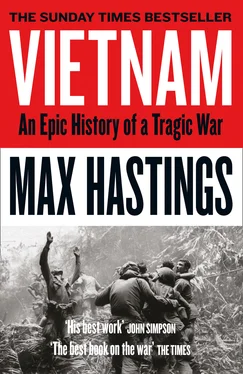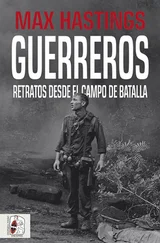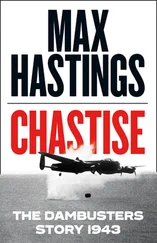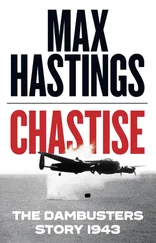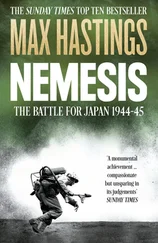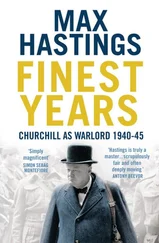Much of the narrative below depicts cruelties and follies, yet within the big canvas many individuals, Vietnamese and American, of all ages and both sexes, military and civilian, behaved decently. I have sought to tell stories of such people, because it is mistaken to allow virtuous endeavour to vanish into the cauldron of bomb blasts, brutalities and betrayals from which most accounts of the war are served up. I decided not to conduct primary political research: US archives have been trawled by scholars for decades; exhaustive accounts exist of the Western participants’ decision-making, notable among them those of Fredrik Logevall. Ken Hughes’ 2015 rendition and analysis of the White House tapes have established an almost incontrovertible record about the thinking and decision-making of Nixon and Kissinger that ended in the January 1973 Paris Accords, and supersedes much of the self-serving narrative presented in the participants’ memoirs. However, I have spent many hours studying testimony in the US Army’s Military Heritage and Education Center at Carlisle, Pa., and the US Marine Corps’ Archive at Quantico, Va. I have also accessed online material from Texas Tech University’s Vietnam War Study Center at Lubbock, and conducted almost a hundred interviews with survivors of all ages and both sexes, American and Vietnamese. Thanks to the indispensable aid of Merle Pribbenow, I have read many thousands of pages of translated Vietnamese memoirs, documents and histories.
Any historian such as myself, publishing a 2018 study of Vietnam, should acknowledge a debt to the recent Burns-Novick TV documentary series, which around the world has reawakened consciousness about this epochal struggle. I hope that my own work conveys something of the enormity of the experience the Vietnamese people endured over three generations, from the consequences of which they remain unliberated to this day.
MAX HASTINGS
Chilton Foliat, Berkshire, and Datai, Langkawi, Malaysia
May 2018
*Described, along with other experiences of conflict, in the author’s 2000 memoir Going to the Wars .
Note on Styles Adopted in the Text
Viet Nam is represented thus by its own people; in the interests of accessibility, however, I sustain the Western custom of using Vietnam, just as I render Ha Noi, Sai Gon, Dien Bien Phu, Da Nang and Viet Cong as single words.
The Vietnamese language makes extensive use of tone marks. I omit these in my text, but in the bibliography and index all proper names are appropriately accented.
Vietnamese names are commonly triple-barrelled, with the family name coming first, and I have adhered to this convention. Many Westerners are bewildered by the profusion of Vietnamese called Nguyen, but this is an accident beyond my undoing.
Wherever possible without forfeiting coherence I omit province names, to avoid crowding the narrative with geographical detail.
Translations often yield stilted prose. When quoting from foreign-language documents and memoirs in all my books, I respect Dryden’s admonition that a translator ‘should not lackey behind his author, but mount up beside him’. Thus, I seek to convey Vietnamese and French conversations in colloquial English.
‘African American’ is a modern term; in the Vietnam era, the word ‘black’ was used, and thus I retain it here. I cite an American’s race only where this seems relevant.
Ranks attributed are those held at the time of episodes described.
North and South Vietnam are capitalised thus when referenced as separate states, but lower-cased as north and south when the country was unified pre-1954 and post-1975.
All the combatants measured distances metrically. I nonetheless adopt feet, yards and miles, even in direct quotations.
The colloquial phrase for joining South Vietnam’s communist guerrillas was ‘ ra bung ’ which meant ‘going out into the marshes’, rather as some French World War II Resistants designated themselves maquisards , because they sought refuge in the maquis wilderness. Vietcong and its abbreviation ‘VC’ were South Vietnamese slang terms, but too familiar not to retain here.
American spellings are used in quoted speech by Americans, or in a conspicuously American context, for instance ‘secretary of defense’.
In thematic sections – notably, about the experience of combat – personal experiences from different periods of the war are sometimes merged, where this does not distort their significance and validity.
Timings of military operations are given by twenty-four-hour clock, but otherwise in accordance with twelve-hour civilian practice.
No attempt seems plausible to set a value upon the South Vietnamese piaster against the US dollar, since chronic inflation and unrealistic official exchange rates render no comparison valid for more than a short period of the wartime era.
AFN US Armed Forces Network radio stations
AK-47 Soviet-designed Kalashnikov assault rifle of which a Chinese variant began to be issued in quantity to Vietnamese communist forces in 1965
APC armoured personnel-carrier, most often in Vietnam the tracked M-113
ARVN Army of the Republic of [South] Viet Nam, pronounced as ‘Arvin’
bangalore torpedoes explosive charges packed in sections of metal or bamboo tubing, for breaching wire entanglements
battalion military unit, comprised of 400–1,000 men, normally organised in three/four companies and a headquarters
boonie-rat slang term for US infantry soldier
brigade military headquarters, controlling up to 5,000 men
cadre communist functionary
CAP combat air patrol
cherry green infantryman
chieu hoi literally ‘welcome return’, name of Saigon’s programme to process and rehabilitate defectors from the VC or NVA, often used to categorise the many thousands who joined it – ‘He’s a chieu hoi ’
CIA Central Intelligence Agency
Claymore M-18 directional anti-personnel mine, spraying a hundred steel balls across a 40-degree arc, triggered manually or remotely
company military unit, a captain’s command, comprised of 100–180 men, in three or four platoons
CORDS Civilian Operations and Revolutionary [later changed to Rural] Development Support
corps military headquarters directing two/three divisions, commanded by a lieutenant-general
COSVN communist headquarters – the Central Office for South Vietnam, or Trung Uong Cuc Mien Nam , usually located near the Cambodian border
CP command post
division military formation, comprised of 8–15,000 men, organised in two/three brigades, commanded by a US major-general or sometimes by a Vietnamese colonel
DMZ the Demilitarized Zone, created near the 17th Parallel by the 1954 Geneva Accords, separating the new North and South Vietnams
dust-off slang for a medevac helicopter
DZ dropping zone for paratroops
ECM electronic counter-measures deployed by US aircraft against North Vietnamese ground defences
FAC forward air controller
flak slang term for anti-aircraft fire
FO [artillery or mortar] forward observer, accompanying infantry
FOB forward operating base
FSB fire support base
GCMA French special forces – Groupement de Commandos Mixtes Aéroportés
grunt slang term for US infantry soldier
hooch slang term for soldiers’ quarters, alternatively a bunker or hut
ICC International Control Commission, established under the 1954 Geneva Accords with Indian, Polish and Canadian membership to monitor implementation. It persisted, albeit little heeded, until the 1973 Paris Accords, following which it was supplanted by a new
ICCS, International Commission for Control and Supervision, which had a wider membership to address an alleged 18,000 ceasefire violations, but proved equally ineffectual
Читать дальше
